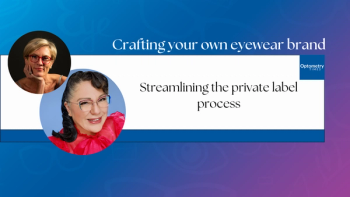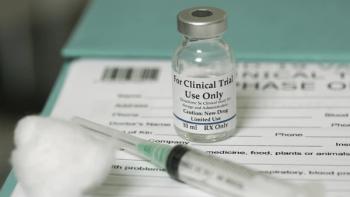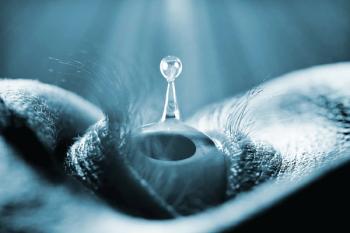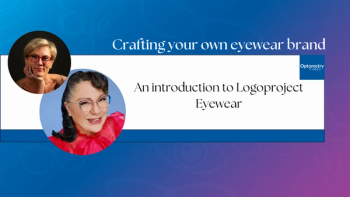
Q&A: Justin Kwan, OD, FAAO Assistant professor and chief of cornea and contact lens services, Marshall B. Ketchum University
I grew up in the San Francisco Bay Area. My dad worked in the tech industry; he’s an electrical engineer by training.
Where did you grow up?
I grew up in the San Francisco Bay Area. My dad worked in the tech industry; he’s an electrical engineer by training. My mom is a realtor. She spends as little or as much time as she wants doing that.
Related:
What got you from cell biology to ocular surface disease?
It’s really more “How did I get into optometry?” When I was in first or second grade, I got my first pair of glasses. I really liked what my optometrist did for a living. It was like he always had fun. Even before starting college, I knew I wanted to head toward optometry. Once I graduated optometry school, I decided to do a residency. I didn’t quite match to a contact lens program, but I stumbled onto a hybrid program in contact lenses and dry eye. Ocular surface became my everyday life for a little while. I was mentored by Jerry Paugh. We did a lot of dry eye projects together, and I got to meet a lot of companies and dry eye experts both on the scientific side and on the clinical side. It morphed into a specialty of mine to not only deliver for patients who have been struggling for years but also contribute by doing collaborative work with folks from all over the world.
What keeps you in research vs. private practice?
At the university, I feel fortunate to have mentors in folks who have been at this game for many more years than I have. They are guiding me and ready for me to bounce ideas off them. I like that every day is a little different. I’m not seeing my 12 to 16 patients a day. I get to teach in the laboratories and the clinic and work with students. And I’m in the trenches with my colleagues seeing some unique cases.
What’s it like to run a clinic in academia?
The average eye exam is going to take a lot more time because we are supervising the students. They tend to do a few extra tests, be a little bit more thorough, and we have a healthy discussion about it. Running the contact lens clinic is not too different from a private practice. We offer a high level of exceptional care within the confines of a relatively slower clinic. We have a few more resources than a private practice but the day to day and the finances are run similarly to a private practice.
Related:
Why is collaborative research important?
I’m working with seven other passionate dry eye clinicians who are in private practice. I get to hear a lot of new ideas. I’m on group text messages with them, so I get to hear them out and do a more digging and investigating myself. We push each other to know more and get cutting-edge results. When new treatments or drugs come out, we get fresh ideas and feedback from these collaborative researchers right away. I feel like I’m in constant contact with these folks, and it really helps me take better care of my patients.
What do you do for down time?
Right now, I play fantasy football. [Laughs] I’m in three leagues. To be honest that’s not the worst-I’ve been in as many as six leagues. I like playing basketball, volleyball, biking, running, watching Netflix with the wife.
What’s something your colleagues don’t know about you?
I can play piano. I have since I was six years old. I was classically trained, but I enjoy playing Top 40 stuff, things I hear on radio, and I play for church. There was a lady at church who taught piano part time. I started with her and she taught me the theory, reading music notes, rhythm, all that kind of stuff. And then after a few years I transferred to another piano teacher and played all the way through the end of high school.
What insights can OD students take away by reading dry eye patient forums?
The main forum is Dry Eye Zone, and more recently I did a project on graft vs. host disease on a Facebook support group. In either forum, patients tend to be more honest because they feel it’s a safe place. I get to hear how the patient’s daily life is affected. The forum tends to be more severe patients who are desperate. They’ve become in the best way possible OCD about their condition, so they might be even more well-read than a lot of optometrists. I learn how they talk to each other and what kind of ideas they throw around. It is super helpful for students to hear this set of patients and how they talk about their condition.
Related:
What do you foresee your students encountering in dry eye research in the next decade?
I think a low-hanging fruit would be the work I’ve been doing: survey-based questions trying to understand the patient experience and patient-reported outcomes. I think a lot of post-market surveillance is going to start picking up now that we have two dry eye medications. I think research can be intimidating for a lot of my students. Right now, there’s no research requirement for them to graduate. But we do have a research elective, and I want to support their curiosity. I want to develop in my students a curiosity. How they pursue research is for me to be a resource and mentor to them and to get them connected.
What’s one thing about optometry you would change right now?
I could complain about the regulatory things, but that’s OK. [Laughs] I wish our prescribing privileges were not as limited. From a FDA standpoint, I wish we could get more myopia control devices. I have passion for myopia control. Yeah, I wish there weren’t as many hurdles and red tape to get devices and treatment to patients sooner. If I could change optometry, I would get things to patients sooner.
What’s the craziest thing you’ve ever done?
I’ve cliff jumped off a reservoir near my home town, maybe a 40-foot drop. I-this is kind of embarrassing-bought a grappling hook off eBay in college, and I rappelled down the side of a building. [Laughs] It was our apartment building just a few blocks off of campus at night. We’re like, we’re going to pretend to be n
Newsletter
Want more insights like this? Subscribe to Optometry Times and get clinical pearls and practice tips delivered straight to your inbox.













































.png)


